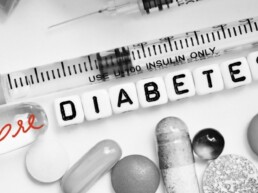Vitamin D: The Sunshine Vitamin and its Importance to Your Health
Vitamin D is a fat-soluble vitamin that plays a crucial role in maintaining overall health and wellness. This vitamin is commonly known as the “sunshine vitamin” because it is produced by the body when the skin is exposed to sunlight. While Vitamin D is essential for healthy bones, it is also involved in many other important physiological processes. These include regulating the immune system, maintaining healthy organs, and supporting mental health.
Vitamin D and Physical Health
Vitamin D is essential for the proper functioning of the body’s immune system. Adequate levels of Vitamin D can help reduce the risk of infections, including colds, flu, and certain autoimmune diseases. Additionally, Vitamin D helps regulate the levels of calcium and phosphorus in the body. Both these minerals are essential for building and maintaining strong bones and teeth. A lack of Vitamin D can lead to a condition called rickets and osteomalacia, which can cause weak bones, fractures, and deformities.
Vitamin D is also involved in the regulation of the heart and cardiovascular system. Studies have shown that low levels of Vitamin D are associated with an increased risk of heart disease and stroke. Vitamin D has also been linked to a lower risk of developing type 2 diabetes, which is a serious health condition that can lead to other complications, including heart disease and blindness.
Vitamin D and Mental Health
Vitamin D plays a significant role in supporting mental health, including brain function and emotional well-being. Studies have shown that low levels of Vitamin D are associated with an increased risk of depression, anxiety, and other mental health disorders. Vitamin D has been shown to increase the levels of neurotransmitters in the brain, which are involved in regulating mood, sleep, and appetite. It is also believed that Vitamin D helps regulate the hormones in the body, which can impact emotional well-being and mental health.
Prediabetes and Vitamin D
Prediabetes is a condition in which a person has high blood sugar levels, but not high enough to be diagnosed with diabetes. Prediabetes can lead to a number of health complications, including heart disease, stroke, and type 2 diabetes. Recent research has shown that Vitamin D supplementation may help reduce the risk of developing prediabetes and type 2 diabetes. Vitamin D has been shown to improve both insulin sensitivity and glucose tolerance, which are important factors in the development of diabetes.
Testing and Adequate Levels
Vitamin D levels can be tested through a simple blood test. A Vitamin D test measures the amount of 25-hydroxyvitamin D in the blood, which is the form of Vitamin D that is most commonly used to determine Vitamin D status. It is recommended that individuals get tested for Vitamin D deficiency if they are at risk for deficiency, such as those who have limited sun exposure, are obese, have dark skin, or have certain medical conditions.
The recommended adequate levels of Vitamin D vary based on age, sex, and other factors. However, most health organizations recommend that adults aim to get between 600-800 international units (IU) of Vitamin D per day. For individuals who are deficient in Vitamin D, higher doses may be recommended for a period of time until levels normalise.
Natural Ways to Raise Your Vitamin D
If you’re looking for natural ways to increase your Vitamin D levels, there are several options to consider. These methods can be especially important if you live in an area with limited sunlight or if you are unable to spend time outside due to health or other concerns.
- Consuming Vitamin D-rich foods: One of the easiest ways to increase your Vitamin D intake is through your diet. Some of the best food sources of Vitamin D include fatty fish such as salmon and mackerel, egg yolks, mushrooms, and fortified dairy products such as milk and yogurt. By incorporating these foods into your meals, you can help ensure that you’re getting enough Vitamin D to support your overall health.

- Sun exposure: Spending time in the sun is one of the most natural ways to increase your Vitamin D levels. When your skin is exposed to sunlight, it produces Vitamin D3, which is then converted to the active form of Vitamin D in the liver and kidneys. However, it’s important to be mindful of the risks associated with overexposure to the sun, including skin damage and skin cancer. To minimise these risks, aim to spend 15-30 minutes outside during peak sun hours – typically mid-morning to mid-afternoon – without sunscreen, and then apply sunscreen to protect your skin.

- Exercising outdoors: Combining outdoor activities with exercise can be a great way to increase your Vitamin D levels while also supporting overall health. Whether it’s going for a run, hiking, or biking, engaging in outdoor activities can help you get both physical exercise and sun exposure, which can help increase your Vitamin D levels.

- Window exposure: If you are unable to spend time outside, you can still benefit from exposure to sunlight through windows. While glass does filter out some of the UVB rays that are necessary for Vitamin D production, it still allows some of these rays to pass through (Holick, 2007). So, even if you’re inside, try to sit near a window or spend some time working or reading by a sunny window to help boost your Vitamin D levels.
Incorporating these natural methods into your lifestyle can help ensure that you are getting enough Vitamin D to support your overall health. However, it’s important to remember that getting enough Vitamin D can be challenging, especially during the winter months or if you have limited sun exposure. If you’re concerned about your Vitamin D levels or are unable to get enough through natural means, talk to your healthcare provider about Vitamin D supplementation.
Supplementation
If you’re unable to get enough Vitamin D through natural methods, or if you have been diagnosed with a Vitamin D deficiency, you may need to consider supplementation. Vitamin D supplements are available in two forms: Vitamin D2 and Vitamin D3.
The preferred form is Vitamin D3 because it is the same form of the vitamin that is produced by the body when the skin is exposed to sunlight. This version is available over-the-counter in a variety of doses, ranging from 400 IU to 5,000 IU or more. However, it’s important to speak with your physician before starting any Vitamin D supplementation regimen to ensure you are getting the appropriate dosage.
To wrap it up…
In conclusion, Vitamin D is a vital nutrient that plays a crucial role in maintaining overall health and wellness. From regulating the immune system and building strong bones, to supporting mental health and reducing the risk of prediabetes, Vitamin D is essential for optimal health. Whether through natural means, such as spending time in the sun and eating Vitamin D-rich foods, or through supplementation, it is important to make sure that you are getting enough Vitamin D to support your overall health and well-being.
SHARE

Madhavi Shilpi
Nutritionist
Prediabetes Coach
Related
Carbohydrates: Fuel For Your Body
Do you often wonder about the role carbohydrates play in our diet? Did…
Fats: A Balanced Perspective
Fats are good for us. Fats are bad for us. The argument rages on. Is there a…
Probiotic-rich foods: 10 health benefits
Probiotics are live microorganisms that are beneficial for our health when…
What is Prediabetes?
Have you been diagnosed with Prediabetes? Are you wondering what it actually…
Why Early Diagnosis of Prediabetes Is Key to Preventing Type 2 Diabetes
Introduction Imagine this: you’re feeling pretty healthy. Maybe you’re a…
32.8% of India Has Prediabetes — Are You Ignoring the Early Signs?
Introduction India is facing a serious health crisis: 32.8% of the…
Proteins: Building Blocks for a Stronger You
Are you curious about the role proteins play in our diet? Do you wonder…
Carbohydrates: Fuel For Your Body
Do you often wonder about the role carbohydrates play in our diet? Did…
Fats: A Balanced Perspective
Fats are good for us. Fats are bad for us. The argument rages on. Is there a…
Probiotic-rich foods: 10 health benefits
Probiotics are live microorganisms that are beneficial for our health when…
What is Prediabetes?
Have you been diagnosed with Prediabetes? Are you wondering what it actually…
Why Early Diagnosis of Prediabetes Is Key to Preventing Type 2 Diabetes
Introduction Imagine this: you’re feeling pretty healthy. Maybe you’re a…
32.8% of India Has Prediabetes — Are You Ignoring the Early Signs?
Introduction India is facing a serious health crisis: 32.8% of the…
Proteins: Building Blocks for a Stronger You
Are you curious about the role proteins play in our diet? Do you wonder…
Carbohydrates: Fuel For Your Body
Do you often wonder about the role carbohydrates play in our diet? Did…








